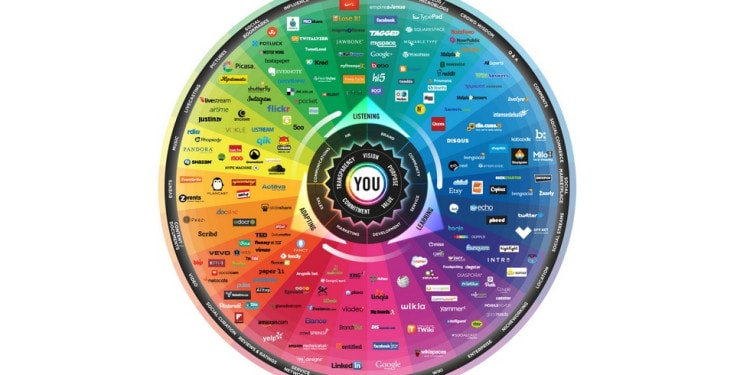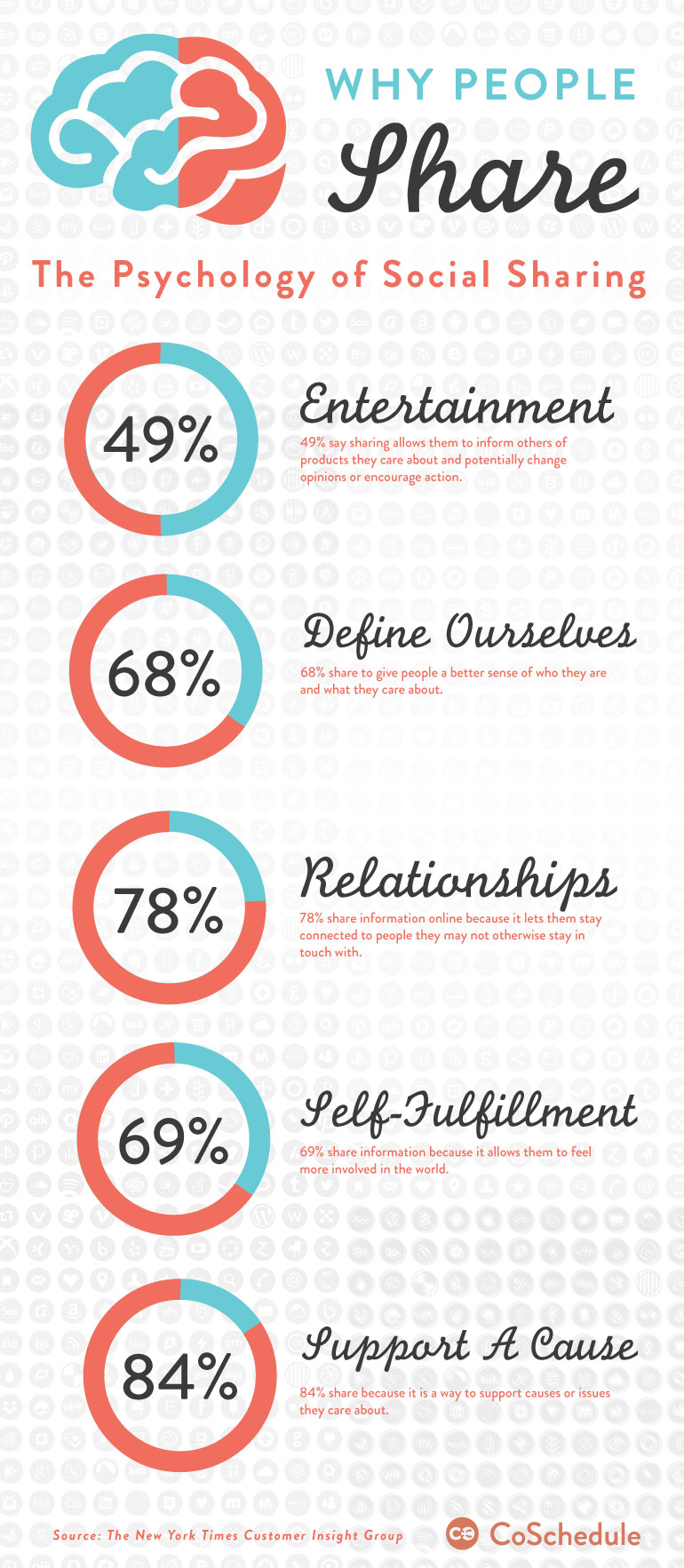Why We Share, Like and Follow on Social Media
I have yet to find someone who really likes Facebook but just about everyone I know, despite the complaints, returns to it, day after day – or at least three times a week.
Why? Are we so sheepish that we are afraid of being left out? That we need to be “on-board” at all times? That we need the reassurance of (otherwise totally ill-defined) “likes”? That we throw out “likes” as a quick “support” for “friends” (many of whom we have never seen in real life) so that it all becomes more like a “quick fix”?
Why can’t we do without that quick fix? And a quick fix for what?
On a blog put out by the people who have developed Buffer (probably one of the best apps to manage your Twitter account and other social media accounts too, including Facebook and now, also Pinterest), a post recently explored the reasons why we go to Facebook (see here).
All the usual reasons, as you might expect. But half-way down the post, there is an extraordinary chart that provides a comprehensive list:
Take a close look: the top reason why we share is not relationships (78%) or self-fulfillment (69%), which is what intuitively you might have expected to be the case, but “support a cause“. And it comes in with a whopping 84%!
That is truly astonishing. Are people really that driven by causes? Or is it a fact that people who live by an ideology are more apt to jump on Internet and tweet, comment, share like mad, until they’ve got the likes of an Arab Spring going?
Yet these numbers are not made up by a bunch of dummies. They are based on very serious research carried out by the New York Times Customer Insight Group.
Well worth reading, full of “pearls of wisdom” like the one that emails, even in this age of expanded social media, work best to promote something.
The NYT Customer Insight Group was started several years ago and is now well established. This is a team of some 25 experts, comprising advertising research, user and product research, web analytics, data mining and statistics. The group regularly releases public research on marketing strategy and the dynamics of purchase choice. When that psychology of sharing study came out last year it was amply commented in the blogosphere (for example, see here).
That people are driven more by causes than by personal relationships and friendships is a major finding. It should give pause to marketers and brand-builders…








